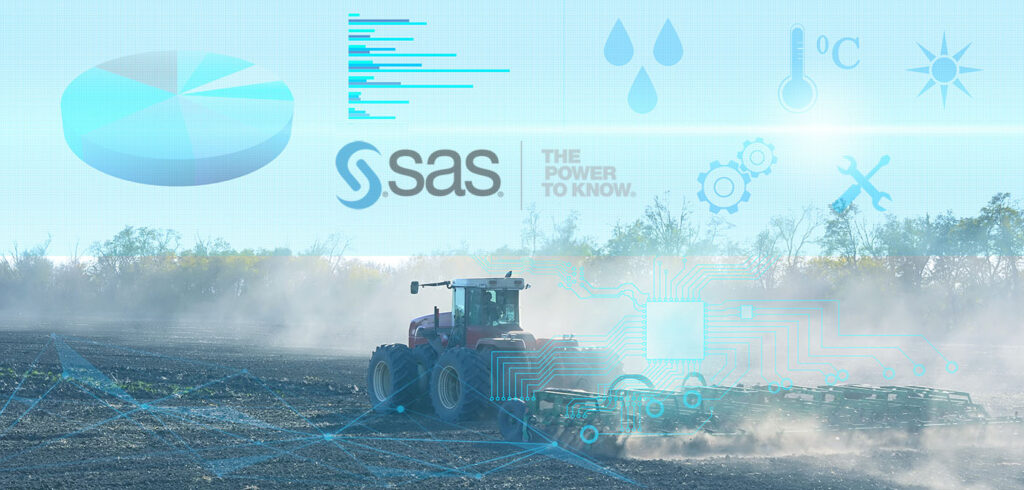SAS, the Cary-based analytical software company, comes with a list of accomplishments. It claims that it cracks open the ‘black box of AI’; that it’s the No. 1 AI and advanced analytics platform; that it makes engineers 100 times more efficient; and that it cuts the diagnostic time of Volvo Trucks by 70 percent.
More recently, the company focused on feeding the escalating world population, so it created a business unit to help growers and agribusiness leaders turn the ever increasing quantities of farm and agricultural data into insights for safe and secure food production. Growers are grappling with a bumper crop of data and it will only increase. That data will increasingly come from IoT devices that collect information on topography, soil fertility, meteorology and livestock health as well as autonomously gathered images from crops such as tomatoes and strawberries.
Furthermore, SAS will embed full-time data scientists within the the NC Plant Sciences Initiative (NC PSI) at NC State University to collaborate on various research efforts.
The NC PSI tags itself as ‘growing the future’ by ‘[improving] the world through plant science innovation and making North Carolina the go-to place for agricultural solutions.’
As a global leader in accelerating plant science innovation, NC PSI convenes experts from academia, government and industry to drive vital cross-disciplinary research that increases crop yields, creates new varieties, extends growing seasons, enhances sustainability, and produces new and improved technology.
‘The future of agriculture,’ NC PSI promises, ‘starts here.’
Going back to its roots…
Around fifty years ago, SAS successfully completed its first project within the labs of NC PSI by analyzing crop yield data. Now that it’s the leader in analytics, it’s partnering with the Initiative to help create the next crop of agricultural analytics experts.
“One of the initiative’s biggest challenges,” said College of Agriculture and Life Sciences Dean Richard Linton, “is our ability to collect and translate large amounts of complex data into useful information that can help researchers and farmers make better informed, real-time decisions. This new partnership with SAS will be pivotal in helping us harness the power of data to improve agricultural outcomes and provide global consumers a higher quality, more accessible food supply.”



